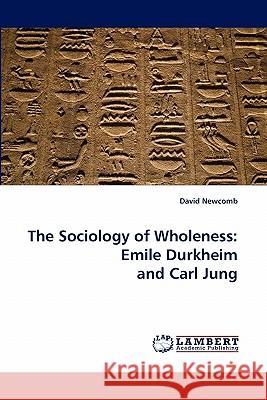The Sociology of Wholeness: Emile Durkheim and Carl Jung » książka
The Sociology of Wholeness: Emile Durkheim and Carl Jung
ISBN-13: 9783843365093 / Angielski / Miękka / 2011 / 52 str.
This book seeks to integrate the sociology of Emile Durkheim with the psychology of Carl Jung. The purpose of this goal is to develop a sociological definition of "wholeness" or "integration" that can be developed further in theory and research. Historically, the concept of the unconscious is not the exclusive domain of psychology. The fact that Durkheim advocated the need for sociologists to study the unconscious has been overlooked until recently. This text takes the position that from within a social context, conceptual classifications or distinctions can be made between groups and the individual, as well as between consciousness and the unconscious. Further, I suggest that the human experience includes a personal and a collective consciousness, as well as a personal and collective consciousness. My intention is to integrate all of the conceptual categories that these dualisms entail, and thereby contribute a new social psychology of Durkheim and Jung.
This book seeks to integrate the sociology of Emile Durkheim with the psychology of Carl Jung. The purpose of this goal is to develop a sociological definition of "wholeness" or "integration" that can be developed further in theory and research. Historically, the concept of the unconscious is not the exclusive domain of psychology. The fact that Durkheim advocated the need for sociologists to study the unconscious has been overlooked until recently. This text takes the position that from within a social context, conceptual classifications or distinctions can be made between groups and the individual, as well as between consciousness and the unconscious. Further, I suggest that the human experience includes a personal and a collective consciousness, as well as a personal and collective consciousness. My intention is to integrate all of the conceptual categories that these dualisms entail, and thereby contribute a new social psychology of Durkheim and Jung.











